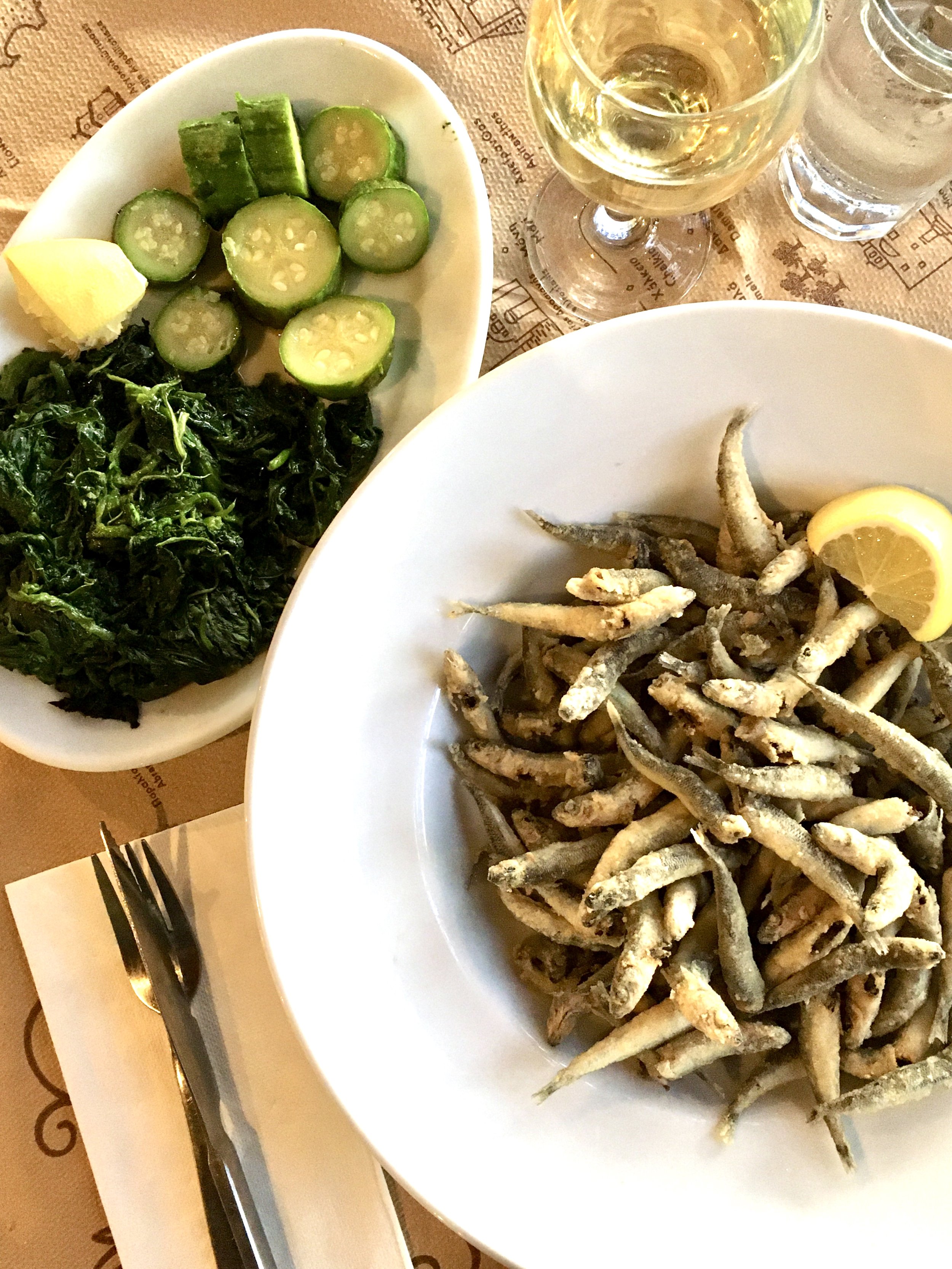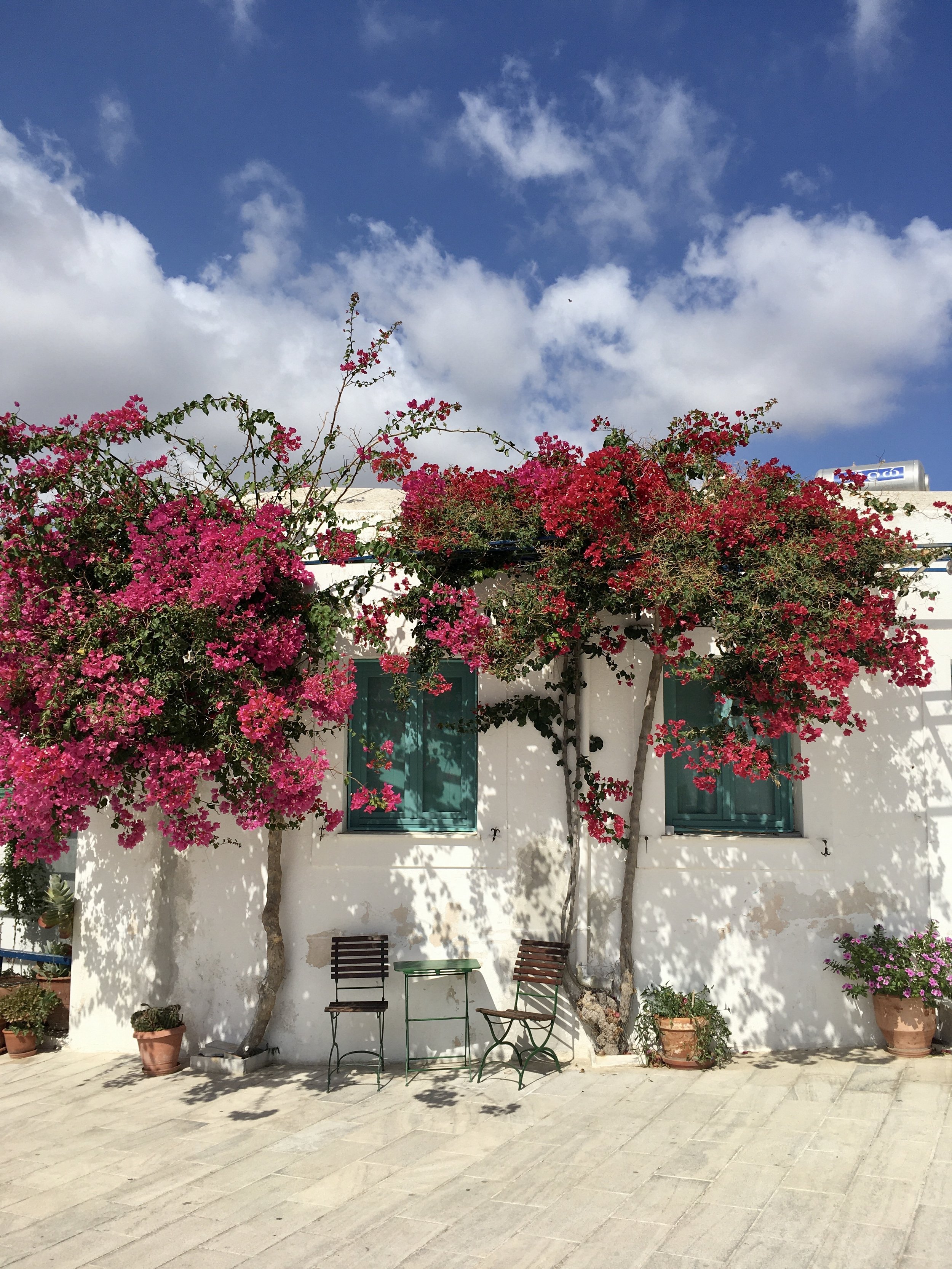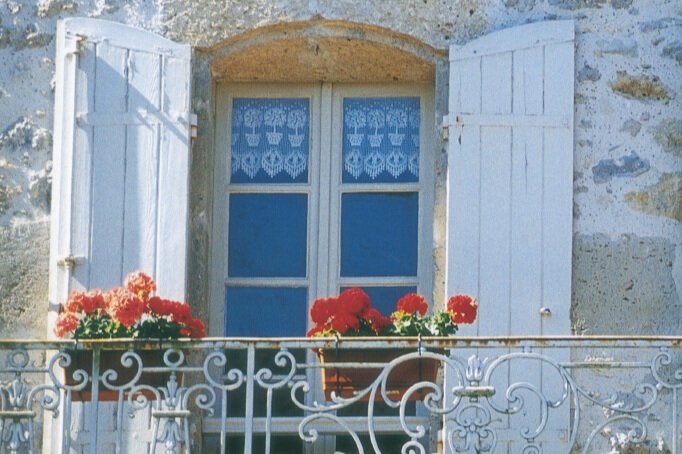Advertisement
Behind The Cookbook: My Big Fat Greek Cookbook
22 February 2022 · Behind the Cookbook · Family Favorites
“I wanted to honor my mom while she was still alive by preserving her priceless recipes.”
The idea for My Big Fat Greek Cookbook was born when filmmaker, actor, innovator, and author Christos Sourligas received the devastating news of his mother’s terminal illness. Determined to document his mother’s recipes, he spent a year working alongside her in her kitchen, learning to cook her dishes.
Evdokia Antginas, Christos’s mother, was born in the mountainous region of Arcadia, Greece. After surviving World War II and the Greek Civil War that followed, she emigrated to Canada in the mid-1960s. She was married for more than 50 years to Christos’s Baba and had four children and four grandchildren. Evdokia always felt most at home when cooking for family and friends. She passed away in 2020.
A year after his mother’s death, Christos set out on a six-month journey through Greece to connect with his family’s home country, savoring the food and learning some important life lessons on the way.
This book, co-authored by mother and son, is the result. Christos describes it as “our family’s gift to the world.”
I am not a famous cook nor a celebrity chef. This idea for this cookbook took hold when my Greek-born mother was given 12–18 months to live by her doctors. I was overcome by a profound need to document her recipes before she passed. I wanted to honor my mom while she was still alive by preserving her priceless recipes so that generations to come could savor her life’s flavors. Co-authored by my mother, Evdokia Antginas, My Big Fat Greek Cookbook is a contemporary overview of Greek food, recipes, and family culture.
My mother’s recipes are what I call “legit rustic mountain-village peasant food.” My mom and her family survived World War II and the devastating Greek Civil War that followed with just the basic necessities.
That’s what we’re highlighting here: the life of the simple shepherd. It was a way of life idealized by Romantic poets such as Byron, Shelley, and Keats. Nature. Pasture. Utopia. Where the wilderness is unspoiled and the mountainous landscape so vast, it forces you to connect with the bounty that is life. These rural mountain recipes are very different from the typical fare found in Greek seaside restaurants. Their simplicity and originality is inspiring.
Feeding our family was the most meaningful way for my mother to convey her love and devotion. She would frequently tell us that she wanted us kids to grow up healthy and strong, as she had. A typical hospitable Greek mama, she lived for kitchen-table visits from hungry guests, thriving on the pleasure of watching them stuff their bellies. My mother was a selfless provider, always making sure everyone was well taken care of first, always serving herself last.
Unfortunately, my dear mother passed away about a year after the cookbook’s release. It was the hardest thing in the world for myself and for my family to deal with, but we’re delighted and proud to say that my mom got to witness her cookbook’s success. It’s now in its fifth printing, so her recipes have been proven to be stellar.
Setting out on ‘Ulysses’s return’
Following Greek Orthodox tradition, we mourned my mother’s passing with the customary 40-day, six-month, and one-year commemoration services. The first annual memorial honored her with a gratitude service and luncheon attended by close family and friends. The very next day I hopped on a plane to Greece, thinking I had completed my mourning period – my final sacred obligation to my mother – and that I was finally ready to move on. Boy, was I wrong! I would quickly learn during my journey through the motherland that I would feel her loss even more so than the year before. I would also learn one of my mother’s key sacred teachings to us – gratitude for life.
We were brought up to appreciate every moment of my life, no matter how tough, from good to bad, success to failure, ecstasy to depression. My mother taught us to experience and live it all. Otherwise, what’s the point? Following her principles, I experienced the most eye-opening six months of my life. I traveled to eight Greek islands and crisscrossed Thessaly and the Peloponnese. Wherever I went, I regaled family, friends, and strangers alike with stories of my mother and her fabulous cookbook.
As I traveled through Greece on my ‘Ulysses’s return,’ as a close friend called it, I had the sweet pleasure of tasting other people’s versions of the dishes in my mother’s cookbook. I slurped down oodles of fasolakia like there was no tomorrow. I devoured freshly picked boiled dandelion greens, the ultimate Greek side dish. I scarfed down spanakopita every morning before hitting the beach (it’s a Greek summertime tradition).
I enjoyed a daily catch of sardines while staying in fishing villages. I sampled boiled goat in my mother’s mountain village during Annunciation of the Virgin Mary on August 15. I demolished pieces of sugary galaktoboureko pie in the mountain village of Halki on the island of Naxos.
Lessons for a life well lived
Every time I sat down to eat in Greece, I wished my mama was still alive and sitting right next to me. I like to believe her spirit was…
I also learned a few other things along the way:
We never really get over the death of a loved one. And it’s okay to mourn their deaths throughout our own lifetimes. The notion to ‘just get on it with it’ is a misdirection. Why? Because without accepting mortality and all that it entails, we never truly live.
Understand where you come from, your history, and why you’re the way you are. Without this knowledge, you are no one and you will be forced to repeat mistakes from the past. You can’t move forward in your life’s path unless you know who painstakingly created that path before you. Thanks, Mom and Dad!
Mothers (and fathers) are our guiding lights. Without them, we are nothing.
My dear mother was generous to a fault, warmhearted and welcoming, always loving and laughing, adventurous, independent, elegant, sociable. She was also a brilliant amateur Greek folk singer and reciter of poetry. She would do anything for her family and was strong for all of us. May her legacy live for eternity.
Christos’s six most-memorable family recipes
My Big Fat Greek Cookbook is my love letter to my mother for all the sacrifices she made to give her children the life she never had. Filled with simple traditional recipes, memories, and tidbits of information, it has everything from iconic egg-lemon sauce to rich soups, sweet pies, and traditional dishes such as rabbit stew and octopus with pasta, accompanied by tales of Greek history and insight into cultural nuances. The book is a peek into my Greek family, a family that has achieved what so many of us yearn for: a full, meaningful, joyful life, one lived simply, and nourished on real Greek cooking.
These are six of my favorite meals that I enjoyed in my travels through Greece this past summer:
Fasolakia will heal whatever ails you. They are made to be slurped back, so don’t feel embarrassed to do so. Just make sure to submerge your bread into the juicy broth for an extra kick and feel free to crumble some feta on top for added flavor.
Boiled dandelion greens (horta vrasta)
Horta vrasta is probably the healthiest staple in Greek households. Two facts: 1. The Greek word for vegetarian is hortofagos, which means weed-eater; 2. Most people mistake the word horta solely for dandelion greens. The word means greens in Greek. In Greece, there are hundreds of greens that fall into this category.
Hands down, there is no better vegetarian pie. Spanakopita is healthy, rich, and savory, and just one bite reminds me of home. You can also make it with puff pastry and use a lesser amount of spinach and replace it with dandelion greens, chard, and/or leeks.
Fried sardines (sardeles tiganites)
There’s no better feeling on a blistering-hot day than sitting at a Greek seaside taverna, table plopped right onto the sand, a slight breeze on your cheek, swigging back a cold beer, and stuffing yourself with fried sardines, the health-food store of the sea.
My mom’s village serves peppery, succulent, boiled goat after church service on the morning of Annunciation of the Virgin Mary (August 15). Which means that I make sure to visit Greece every August! The aromas, the pulling of the meat off the bones, the lapping of bread into the naturally fatty and salted broth, then sucking it back… is just divine.
The semolina-based custard pie called galaktoboureko is covered in a crispy phyllo shell and soaked in sweet-lemon syrup is by far my favorite dessert. The tongue-twister of a name will leave your mouth filled with pleasure.
About the author
Christos Sourligas is a multiple award-winning film and television writer, director and producer. A storyteller at heart, Christos takes pleasure in entertaining with food, drink and talk. He travels extensively for work and pleasure, often returning with hilarious stories, and of course, several recipes to share. He can also be seen whooping it up on social media. Christos currently resides in Montreal, Canada.
Sign up for ckbk's weekly email newsletter
Related posts
Advertisement








